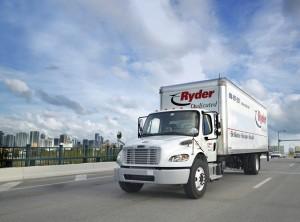
Want to be first pick when it comes to moving your freight?
Who can forget the agony of waiting to be chosen for a dodge ball team in middle school P.E.? There you were, along with 25 other sixth-graders, lined up against the wall in the school gymnasium, with its old wood bleachers, hoping to be one of the first chosen.
Given today’s increasing freight volumes and growing shortage of drivers and capacity, the current transportation market paints a similar picture. Recent TransCore Freight Index data shows that the available load-to-trucks ratio for dry vans has reached alarming levels. The outlook is worse for flatbed and temperature-controlled vehicles.
As demand outpaces capacity, carriers are in the driver’s seat, leaving shippers vying for capacity. As capacity continues to tighten, being named a “shipper of choice” means avoiding paying higher rates in the spot market. However, many shippers don’t know how to “get picked” by carriers.
What makes one shipper more appealing than another? Four factors rank high on TL (truckload) and LTL (less-than-truckload) carrier lists. Shippers of choice typically offer:
- Appealing origins and destinations
- Compensatory fuel programs (especially as fuel costs rise)
- Flexible, fair contracts
The numbers tell the story
How do you make carriers WANT your freight? A leading third-party logistics provider recently surveyed 1,700 Truckload (TL) and 22 Less Than Truckload (LTL) carriers to find out. The survey revealed interesting insights into what carriers look for when deciding which shippers to serve.
Shipping Full Truckloads? Here’s what TL carriers want …
The five key factors TL carriers look for in shippers are:
- Consistent year-round volume
- Favorable origins and destinations
- Compensatory fuel programs
- Fair contracting process
- Favorable payment terms
TL carriers aren’t interested in hauling freight with seasonal highs and lows. They also don’t place as much weight on timely feedback on RFPs or driver amenities. What they do care about is how their drivers are treated. One participant summed it up, noting, “Drivers are human beings. We value shippers who treat our drivers with respect.”
Rank
QuestionAverage Ranking
Rank
QuestionAverage Ranking
1
Consistent Year Round Volume3.620
7
Loading / Unloading Requirements6.289
2
Origins / Destinations4.052
8
Ability to Broker Freight if Desired7.122
3
Compensatory Fuel Program4.861
9
Cargo Insurance Level7.373
4
Cooperation / Fair Contracting Process5.028
10
Timely Feedback on RFP’s8.185
5
Payment Terms5.220
11
Driver Amenities (such as a break room area)8.965
6
Your Relationship with the Shipper5.286
Shipping Less Than Truckload? Here’s what LTL carriers want …
What about LTL shipments? In a survey of 22 LTL carriers, participants in the same study indicated similar preferences for shippers:
- Contracts that are flexible and fair to both parties
- Origin, destinations as well as consistency in volumes
Rank
QuestionAverage Ranking
Rank
QuestionAverage Ranking
1
Compensatory Fuel Program3.789
6
Your Relationship with the Shipper5.105
2
Cooperation / Fair Contracting Process3.947
7
FAK matches the Average Weighted Class5.158
3
Direction of Freight Flow (Origin – Destination)4.526
8
Payment Terms5.263
4
Consistent Year Round Volume4.842
9
Timely Feedback on RFP’s7.368
5
Cargo Liability5.000
The balance of power favors shippers. What can you do?
If you want to be a shipper of choice (and secure more favorable rates), you’ll ideally offer consistent volumes year-round, fair compensation for fuel, “good” origins and destinations and a fair contracting process.
Of course, guaranteeing year-round volume or popular origins and destinations may not be possible if the freight/products you ship are seasonal by nature. Even so, there are factors you can control. You can offer competitive rates, compensate carriers fairly for fuel and be more flexible in the contracting process. Together these factors can help get you picked for the team of your choice.
Written by Mike Koceski, Operations Specialist in the Transportation Service Provider Development (TSPD) Team for Ryder Supply Chain Solutions
Mike is the liaison between Ryder account teams and TSP Development. He’s been with Ryder for 19 years, working on both engineering and automotive teams. He is currently in his ninth year performing procurement activities.

